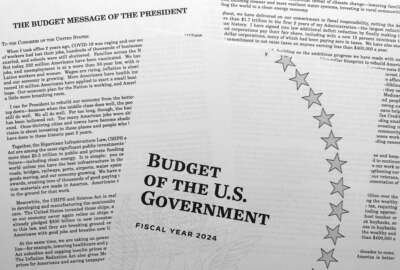
Questions surrounding MAS FSS price analysis: Low price regardless of context
Addressing the FAR price analysis requirements in FAS operations, enhancing and expanding training for the MAS contracting workforce, and providing management with...
On March 6th, the General Services Administration extended to September 30, 2023, Acquisition Letter MV-22-02, Temporary Moratorium of Certain Limitations Contained in Certain GSA Economic Price Adjustment Contract Clauses (the Moratorium Memo). The Moratorium Memo is a thoughtful, responsive and balanced approach to accelerating the Economic Price Adjustment (EPA) modification process in response to inflation. To GSA’s credit, the policy effectively supports contracting officers, MAS contractors, and customer agencies all struggling to respond to the impact of inflation on the pricing and availability of commercial products and services.
In addition to streamlining the EPA process for contracting officers and MAS contractors, the Moratorium Memo shines a light on fundamental operational challenges impacting MAS price analysis. Increasingly, MAS contractors are facing a unique Federal Acquisition Service (FAS) price analysis framework focusing solely on low price without considering key commercial factors.
The FAS is using data pricing tools that scrape and collect prices from across the commercial market for the same or similar items proposed by MAS contractors. It is the hallmark of sound business practice for FAS to collect commercial price data to analyze and understand current trends in the commercial market and obtain the data necessary to assess fair and reasonable pricing. The challenge comes when the FAS operational tools and processes drive contracting officers solely to focus on the low price in the data as the measure of fair and reasonable pricing without considering key factors that drive price.
This “low price regardless of context” (LPRC) framework fails to support MAS contracting officers, is fundamentally unfair to MAS contractors, and is inconsistent with the Federal Acquisition Regulations (FAR). In the commercial and federal marketplaces, price is driven by a host of factors, including, but not limited to, delivery, quantity, quality, warranty, performance period and allocation of intellectual property rights. It makes basic business sense to consider these and other terms and conditions when analyzing proposed prices. That is why the FAR requires such consideration. FAR 12.209, Determination of Price Reasonableness specifically provides that:
While the contracting officer must establish price reasonableness in accordance with 13.106-3, 14.408-2, or subpart 15.4, as applicable, the contracting officer should be aware of customary commercial products and commercial services and conditions when pricing commercial products and commercial services. Commercial product and commercial service prices are affected by factors that include, but are not limited to, speed of delivery, length and extent of warranty, limitations of seller’s liability, quantities ordered, length of the performance period, and specific performance requirements. The contracting officer must ensure that contract terms, conditions, and prices are commensurate with the Government’s need.
Moreover, FAR 15.404-1(b)(2)(ii) directs that for any comparison of proposed prices to historical pricing to be valid, contracting officers must consider the time lapse between acquisitions (an especially important factor given the current inflation rate) and the terms and conditions of the prior acquisition. The FAR directs that prior, historical pricing must be adjusted to account for materially different terms and conditions. Current FAS operational guidance and data collection tools do not appear to be consistent with these FAR requirements, and this apparent lack of consistency with the FAR risks undermining the ability of contracting officers to negotiate fair and reasonable pricing. The implications are significant for MAS contractors and customer agencies. The lack of consistency in establishing MAS contracts ultimately reduces competition and access to commercial products and services across the program. In fact, MAS contractors are seeing significant delays in addressing the negotiation of modifications, and these delays also negatively impact competition and access to commercial products and services at the order level. FAS operational guidance and data tools must be updated to account for context, that is, the commercial terms and conditions that drive pricing.
Training and management also are keys to addressing this dynamic. Continuous investments in basic training for the MAS acquisition workforce supports competition, innovation and access to the commercial market, but such training must address the underlying polices and regulations governing the MAS contracting, especially FAR subpart 12. Training must also include business basics and commercial practices. Understanding how the commercial world operates will serve contracting officers well in the negotiation and administration of MAS contracts.
Regarding management, on October 14, 2022, GSA’s Office of Acquisition issued SPE Memo SPE-2022-3, Appropriate Internal Interactions in the Acquisition Process, addressing management discretion in assigning, monitoring and/or reviewing contracts or contract actions. This memo provides a sound, balanced and appropriate framework for FAS operations, along with support to the contracting officer community, by clarifying how FAS management and the acquisition workforce can improve the effectiveness of their working relationship and deliver best value solutions for customer agencies.
Addressing the FAR price analysis requirements in FAS operations, enhancing and expanding training for the MAS contracting workforce, and providing management with the appropriate discretion to support the workforce are all key steps to addressing the challenges and questions surrounding MAS price analysis. The Coalition stands ready to work with all stakeholders to drive competition, value and innovation through the MAS program.
Copyright © 2025 Federal News Network. All rights reserved. This website is not intended for users located within the European Economic Area.
Related Stories

Commerce’s CATTS procurement exemplifies all that’s wrong with federal small business contracting




